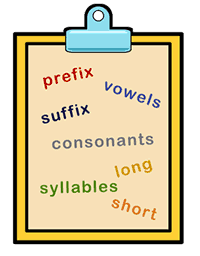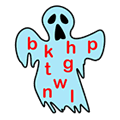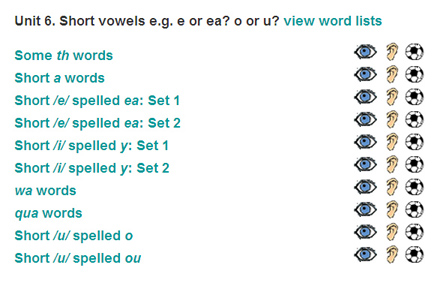The Units are in 3 main sections:

In this level you can:

This section covers:
This section covers:
Most Units start with a teaching section. A sound is introduced and followed by examples of the different ways of spelling that sound. Often the study is split into two levels: basic level short words and higher level longer words. There are activities and games to help at each stage and course tests to check your progress.

Throughout the Spellzone course you will find extra help with homophones - those tricky words which sound alike but have different spellings for different meanings, for example: meet/meat wail/whale paw/pour.
A computer spell-check will not help with these words.
Each section has word lists of the most common words with that spelling pattern.

To help you learn these words there are activities and games indicated by the eye, ear and ball icons:
![]()
You can also add your own word lists and play all these games with your own words.
For more information on activities and games see Activities and games.
Sometimes letters or words are in colour to make them stand out.
For example:
manage village hostage
These symbols are used to help with the understanding of sound:
The glossary at the end of the 'Help' section has more information on these symbols.
"Thank goodness for Spellzone during this remote learning phase. The site is easy for students to navigate independently and they're really enjoying the activities and spelling games. You get an awful lot for your money with Spellzone. Really reassuring is the very prompt response with helpdesk queries. I've very rarely needed the helpdesk, but when I have, the issue has been addressed and sorted within a very short time."
Sarah Taggart, Oasis Academy Lord's Hill